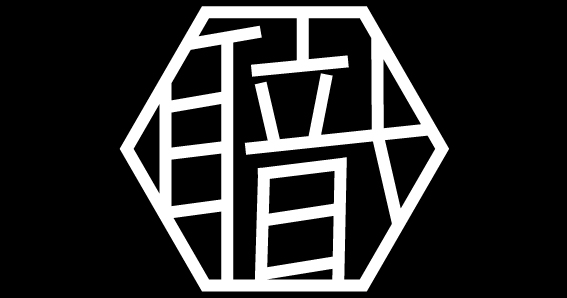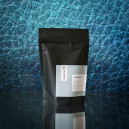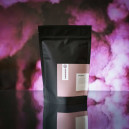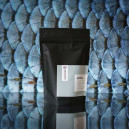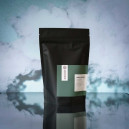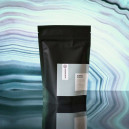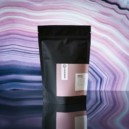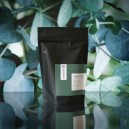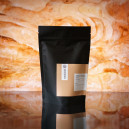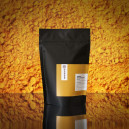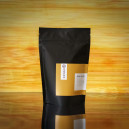Keramo Washed
This incredible Ethiopian cooperative has made a name for itself over the past years with true dedication to quality processes.
Region: Bensa, Sidama, Ethiopia
Altitude: 2,400 m.a.s.l.
Variety: 74/158, 74/100 and Setami
Processing: washed, 72 hours fermentation, dried on raised beds
Additional information
| Weight | N/A |
|---|---|
| Region | Bensa, Sidama, Ethiopia |
| Altitude | 2,400 m.a.s.l. |
| Variety | 74/158, 74/110 and Setami |
| Processing | 72hr fermentation, dried on raised beds |
| Flavour | Floral aromas like jasmin and passion fruit. Juicy sweetness like peach. Silky body like caramel and earl grey tea. |
Jelle's Notes
Keramo has become the most important coffee in our lineup. It’s the one people ask for again and again. Every year we buy more, and every year it sells out.
My connection to this coffee started with Catalyst Trade, a small importer based in Portland that focused solely on Ethiopia. I remember video calling with them and tasting Reko Koba, one of the first coffees we ever roasted under the Shokunin name. We hoped to build something long-term, but had to stop working together due to issues on the ground.
That’s when Keramo came into focus. Our importer teamed up with Coffee Quest, who had the link to Europe. At the time, Keramo, Bombe, and Shantawene were everywhere, but while most roasters chose the others, we went with Keramo. When Catalyst Trade stepped away, we continued sourcing through Coffee Quest, who now works directly with Daye Bensa.
Keramo is the most popular coffee among specialty drinkers. It’s super clean and sweet, with a classic flavor profile. Every year it’s done well. The quality is reliable, it’s versatile and roasts so consistently that people ask for it by name. It works beautifully black, as it has a bit more body than Suke Quto, and holds up well with milk and other brew methods. You can brew it black or with milk, and it always holds up.
Washed Keramo, in particular, is my favorite.
Producers
Keramo is made possible through the Coffee Quest’s long-standing relationship with Daye Bensa, a company started in 1996 by coffee-producing brothers Assefa and Mulugeta Dukamo. They work with communities of outgrowers in the Bensa, Sidama area, including around 1,500 farmers from the Bombe mountains who deliver their cherries to the Keramo Adara Washing Station.
These farmers are part of a network Daye Bensa has built over decades, grounded in trust, transparency, and a shared commitment to quality. The cooperative model gives smallholder farmers access to resources, training, and market opportunities they wouldn’t have on their own.
The farmers around Keramo are deeply rooted in their land and traditions. Many cultivate small plots passed down through generations, often working alongside family members. Their approach to coffee is hands-on and intuitive, shaped by years of experience and a deep understanding of their environment.
 What stands out is their commitment to the work and the processing. Daye Bensa supports these producers not just with logistics, but with training, quality control, and access to international markets. It’s a relationship built on mutual respect, and it shows in the way the farmers engage with their craft.
What stands out is their commitment to the work and the processing. Daye Bensa supports these producers not just with logistics, but with training, quality control, and access to international markets. It’s a relationship built on mutual respect, and it shows in the way the farmers engage with their craft.
Processing
The Keramo Adara Washing Station sits at the highest elevation among Daye Bensa’s facilities. It receives cherries from about 381 smallholder farmers in and around Keramo, Sidama, Ethiopia.
The region’s cool, humid climate, consistent rainfall, and rich soil make it ideal for growing high-quality coffee. Farmers cultivate coffee at elevations between 1,900 and 2,200 meters above sea level, which leads to slow cherry maturation and the development of complex flavors.
Beans from this area are known for their high density, a trait often linked to better cup quality and vibrant flavor profiles.
Daye Bensa is serious about processing. They offer training and resources to farmers and station workers, and their focus on quality control and innovation shows in the clarity and depth of Keramo’s flavor.
